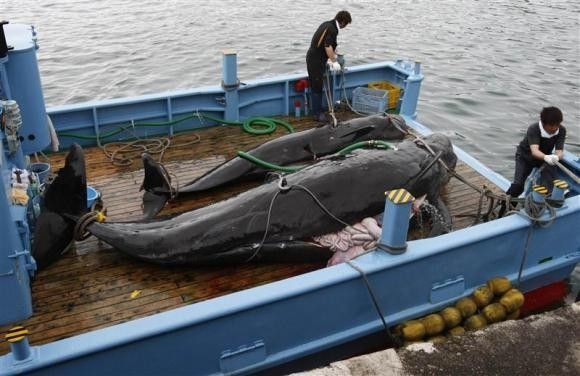New Zealand Remains Opposed To Whaling As Japan Plans To Pass 'Scientific' Standards

Japan is planning to resume its Antarctic whaling despite the ban imposed by the United Nations. New Zealand Prime Minister John Key said he will be "deeply disappointed" since the island nation has been active in the fight against whaling.
According to reports, Japan is hoping to secure international support for its revised whaling programme to hunt minke whales for purposes of "scientific research." The programme was amended to seek the approval of the UN International Court of Justice. The court has previously found that Japan's whaling practices did not justify its claims of scientific research based on the number of whales it killed.
The Australian government, supported by New Zealand, filed a court action against Japan's whaling prorgamme. In behalf of New Zealand, Attorney-General Chris Finlayson presented evidence during a court case in 2013. Australia won the case against Japan which prompted the UN to stop the Japanese whaling programme.
Reports said Japan's Fisheries Agency intends to submit a revision of its whaling programme for the approval of the International Whaling Commission's scientific committee.
In a report by the NZ Herald, Mr Key said New Zealand is against Japan resuming its whaling operations in the Antarctic especially since the country was part of the legal case brought before the UN international court.
He advised Japan to heed the court's ruling and "stay out of those waters."
New Zealand Foreign Minister Murracy McCully warned Japan might alter its whaling programme to comply with the court ruling. He said the government intends to carry out a diplomatic solution to prevent Japan from continuing its plans.
To comply with the international court ruling, reports said Japan might catch fewer minke whales. Japanese whalers might leave the humpback whales alone to pass the "scientific test." Japan has expressed its intention to abide by the court's ruling in March.
Japan's whaling fleet strived to catch about 900 minke whales and a few fin and humpback whales every winter after commercial whaling was banned by the International Whaling Commission in 1986. Whale meat is considered a rare source of protein but environmental activists claim Japan's "scientific" whaling program was only a cover for a commercial whale hunt.
New Zealand has developed a draft of its proposal to end Japan's bid to continue whaling in 2015. The plan will be presented in a meeting with the whaling commission within the month.





















